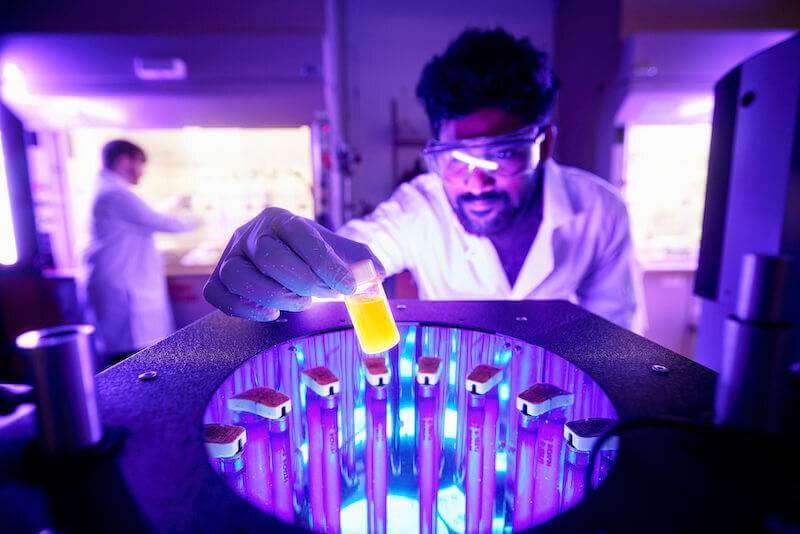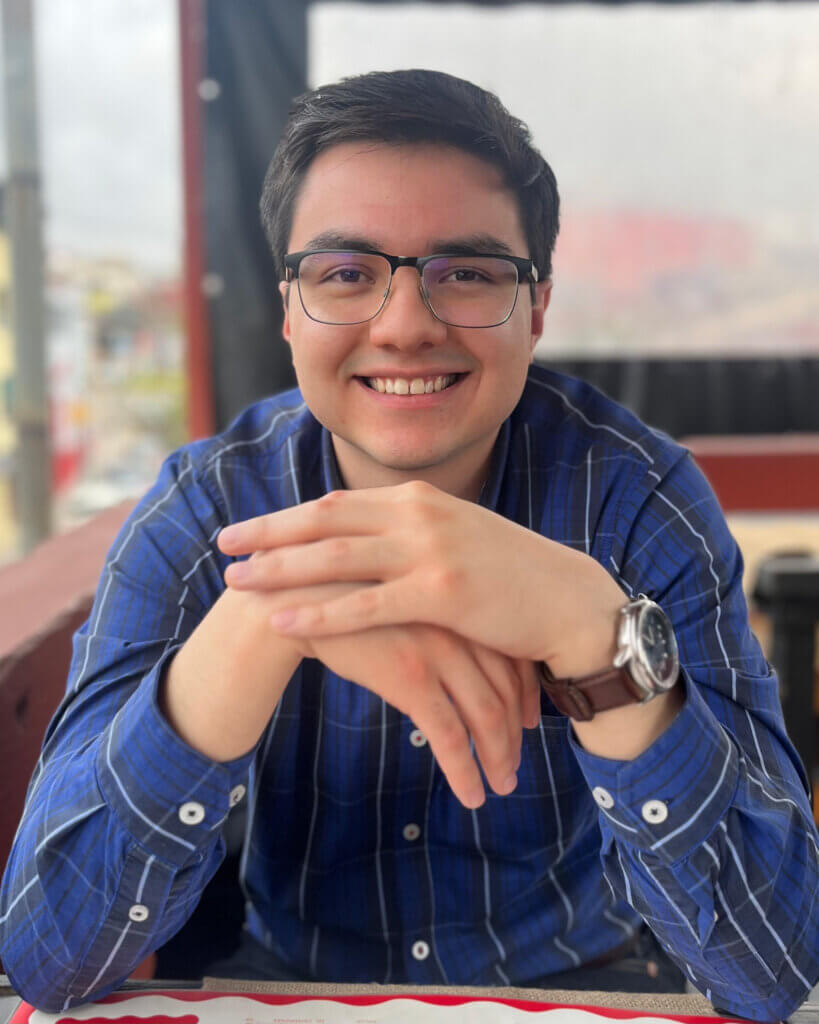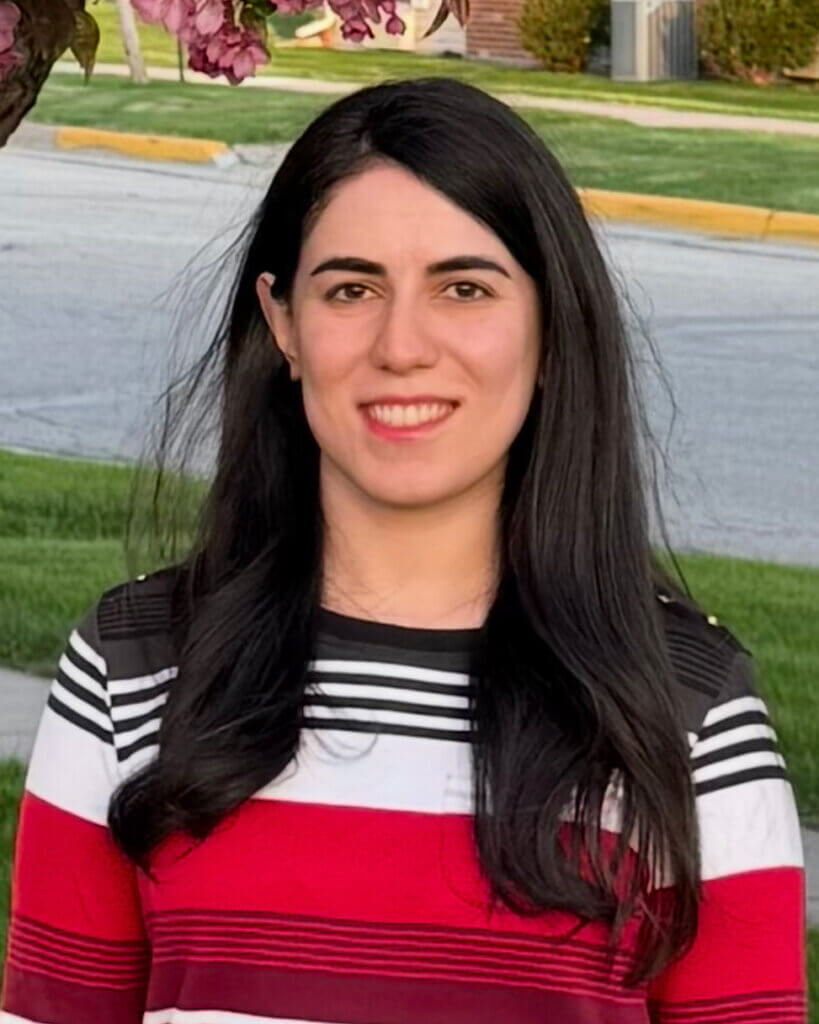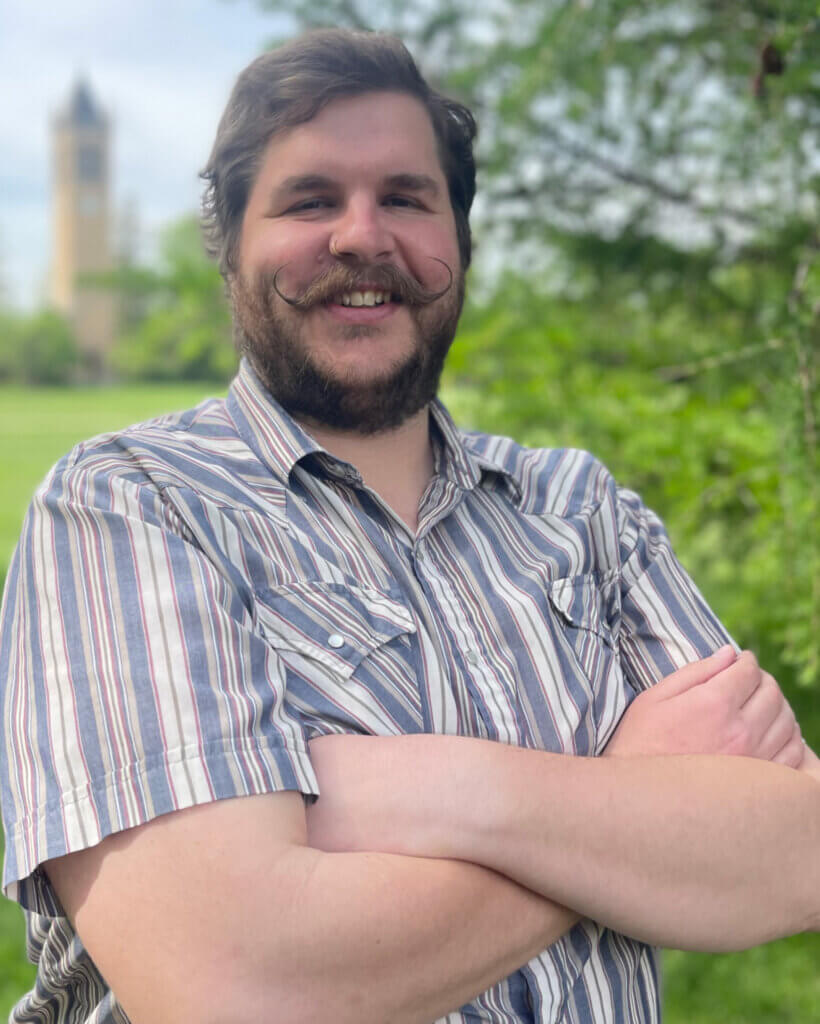2025-2026 Brown Graduate Fellowship Cohort Announced
Posted May 22, 2025

Posted May 22, 2025

Four Iowa State University graduate students have been selected to receive a total of $40,000 in Brown Graduate Fellowship Program funding supporting strategic university research for the 2025-2026 academic year.
Established in 2011 and administered by the Office of the Vice President for Research (OVPR), the annual Brown Graduate Fellowship Program is used to advance Iowa State research in the areas of study covered by the Valentine Hammes Family and Leopold Hammes Brown Family Trust. These research emphases include science, agriculture, and space science. Each year, an internal review committee selects a group of Ph.D. or master’s degree students from across the university to receive $10,000 each in institutional funding, which can be used to enhance existing fellowships, partially fund a fellowship, or assist with recruitment of new graduate students.
This year’s program was especially competitive, with four out of 19 accomplished applicants selected to receive award funding by a committee comprised of research faculty from across campus. Evaluation and selection of recipients for the 2025-2026 awards was based on nomination letters provided by each candidate’s respective director of graduate education (DOGE).
“Iowa State aspires to be the most student-centric leading research university in the nation,” said Vice President for Research, Peter Dorhout. “The Brown Graduate Fellowship is vital for advancing the next generation of innovators at this institution. This year is particularly special because it marks our 15th cohort. We are tremendously grateful for the visionary support of the Valentine Hammes Family and Leopold Hammes Brown Family that has made this incredible milestone possible.”
Recipient: Sabrena Rutledge
Graduate Program: Bioinformatics and Computational Biology
Nominated by: Matthew Hufford, Cassling Family Professor and DOGE, Bioinformatics & Computational Biology, Department of Ecology, Evolution, and Organismal Biology

Hufford: “Sabrena is a fourth-year PhD student and a member of Dr. Geetu Tuteja’s lab. Her contributions have directly supported two NIH-funded projects that are advancing placental biology. In conjunction with these research activities, Sabrena has made significant strides in creating computational tools that enhance the robustness and reproducibility of single- cell gene expression data analysis. She is establishing standards that researchers should follow when publishing new data, creating tools to help implement these standards, and creating tools to understand how gene expression in cells changes over time. These tools are poised to become invaluable resources for the scientific community, addressing critical gaps in the analysis of single-cell data.
“Sabrena exemplifies the qualities the Brown Graduate Fellowship seeks to recognize. Her groundbreaking research in bioinformatics and placental development, impactful dissemination of findings, outstanding leadership, and academic performance show that she is one of our most promising students to advance research at Iowa State. She is an excellent candidate for this fellowship, and I am confident that she will continue to make significant contributions to her field and beyond.”
Recipient: Daniel del Angel Cruz
Graduate Program: Chemistry
Nominated by: Mark Gordon, Distinguished Professor, Chemistry

Gordon: “Daniel is without question one of the best graduate students I have had in my group. He is in the very top tier of my more than 50 PhD students since 1970. Daniel has proven himself to be very creative and innovative. His first research project was to use our quasi-atomic orbital (QUAO) analysis to study the bonding in the recently synthesized mono-phosphorous analog of tetrahedrane . . . We were about to submit a paper when Daniel discovered that a di-phosphorus analog of tetrahedrane had just been synthesized. He suggested we delay submission until he had a chance to do the corresponding calculations and interpretation for the new molecule. This is a great example of role reversal. Usually, it is the professor who makes such suggestions.
“In the beginning of his fourth year in graduate school, Daniel’s research has already drawn considerable attention. He will be an invited speaker in May 2025 at the Telluride meeting on the chemical bond. He has published five papers, with more – probably many more – to come. He is a credit to the university.”
Recipient: Mahya Rahbar
Graduate Program: Mechanical Engineering
Nominated by: Pranav Shrotriya, Bahadur Professor of Mechanical Engineering and Associate Chair for Graduate Studies

Shrotriya: “Mahya is currently a PhD student in Mechanical Engineering, doing research on the science of energy transport at the micro/nanoscale, including novel probing characterization development, advanced theoretical analysis, and physics interpretation. Mahya’s work is pioneering, and her research contributions are expected to have very long and profound impacts in micro/nanoscale thermal science.
“In what I have observed in interacting with Mahya, her research skills are exemplary, her communication skills are excellent, and her technical abilities are outstanding. I believe she has the determination to accomplish her desired goals, including getting her PhD and teaching at the university level. Being named a Brown Graduate Fellowship recipient would be a recognition of all her hard work.”
Recipient: Michael Rohde
Graduate Program: Wildlife Ecology
Nominated by: Michael Weber, Professor and DOGE, Department of Natural Resource Ecology and Management

Weber: “Since beginning his PhD in Wildlife Ecology in May 2023, Michael has demonstrated exceptional talent, a deep commitment to research and education, and an ability to make a meaningful impact . . . His work integrates innovative field research on wildlife populations with advanced analytical techniques to explore how strategic conservation practices, such as wetland implementation, can promote coexistence between wildlife, water resources, and agricultural productivity in intensively farmed landscapes. This research not only addresses urgent questions for Iowa but also holds significant implications for freshwater conservation in agricultural regions across the U.S. and globally.
“Michael exemplifies the qualities of a Brown Graduate Fellow. His innovative research addresses critical environmental challenges, his mentorship and leadership enrich the ISU community, and his professional achievements position him as a rising leader in his field. Recognition through the Brown Graduate Fellowship would not only further empower Michael’s impactful work but also reinforce Iowa State’s leadership in advancing applied research to support agriculture.”
